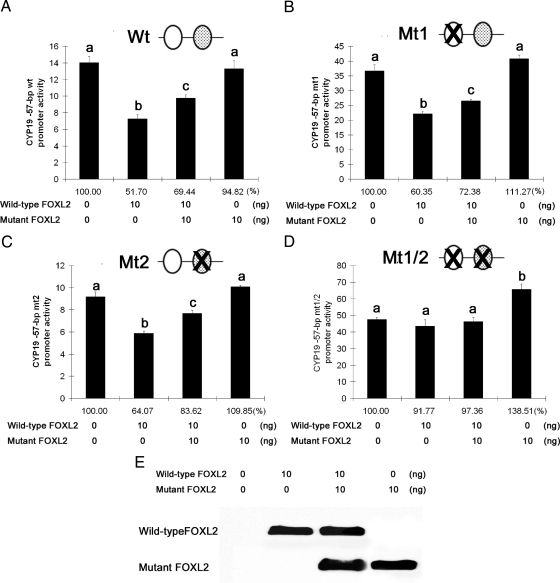Fig. 6.
Mutation of FOXL2-binding sites results in loss of FOXL2 transcriptional repressor activity. A–D, CHO cells were transiently transfected with expression constructs for wild-type FOXL2 and/or mutant FOXL2 and with reporter constructs for the wild-type or mutated −57-bp CYP19 promoter constructs, Wt (A), Mt1 (B), Mt2 (C), and Mt1/2 (D). Twenty-four hours after transfection, luciferase activity was measured. Results were normalized against β-galactosidase activity and reported as fold change relative to the luciferase activity of the empty pGL2 vector backbone under the same experimental conditions. Results were also calculated as the percentage of control (no FOXL2 transfected, 100%) shown below the columns. Each condition was tested in quadruplicate. One-way ANOVA was performed between samples, and different letters (a, b, or c) denote significant differences (P < 0.05) between samples. Transcriptional repression by wild-type FOXL2, and the dominant-negative effect of mutant FOXL2, were not affected when either binding site was mutated individually (B and C), but mutation of both sites resulted in loss of transcriptional repression (D). E, Western blot showing the relative amounts of wild-type and mutant FOXL2 protein expressed after transient transfection.

